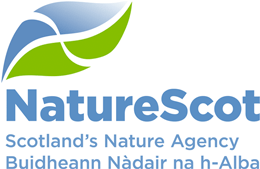12 June, 2015
Report on beavers in Scotland goes to Minister
Options for the future of beavers in Scotland have been outlined in a final report sent to the Scottish Government today (12 June) by Scottish Natural Heritage (SNH).
The “Beavers in Scotland” report, published today, is one of the most thorough assessments ever done for a species reintroduction proposal. It provides a comprehensive summary of existing knowledge about the likely impact of beavers living in the wild in Scotland and options for their management, and sets out four scenarios for Scottish Ministers to consider. These range from full removal of all beavers to the widespread reintroduction of beavers across Scotland.
Ministers asked for the report to help them decide whether to permanently reintroduce beavers to Scotland.
The report draws on 20 years of work on beavers, including information from the Scottish Beaver Trial, a five-year trial reintroduction in Argyll which finished last May; the study of more than 150 beavers living in the wild in Tayside and work on the impact of beavers on salmon and trout and on areas of productive farmland. It also refers to the experiences that many other European and North American countries have had of living with beavers, presents findings on biodiversity and beavers and looks at where they might recolonise if allowed to stay.
Ian Ross, Chairman of Scottish Natural Heritage said: “The issues surrounding the potential for beaver reintroduction in Scotland have been the subject of intense investigation and discussion over the last 20 years. Over this time we’ve pulled together a significant amount of information, drawing on international as well as Scottish experience. The scenarios have been developed with a wide range of interested parties from across the land management, conservation and environmental sectors.
“The report sets out the links between the evidence gathered and the risks and benefits of the various options. It also considers management approaches to help mitigate the risks and maximise the benefits, should beavers be permanently reintroduced to Scotland. This comprehensive report will therefore help inform the decision on the future of beavers in Scotland.”
A number of independent scientific studies, reports and reviews on beavers have also been published. The findings are included in the Beavers in Scotland report.
ENDS
For media enquiries contact Nancy Fraser, SNH media & public relations officer on 0141 951 0809 / 0141 951 4488 or nancy.fraser@snh.gov.uk
An online copy of the Beavers in Scotland report is available at http://www.snh.gov.uk/publications-data-and-research/publications/search-the-catalogue/publication-detail/?id=2273
Online copies of the other studies, reports and reviews published are available at:
Further information about SNH’s work on beavers can be found at www.snh.gov.uk/beavers-in-scotland
The Scottish Beaver Trial
The trial was run by the Scottish Wildlife Trust and the Royal Zoological Society of Scotland, on land managed by Forestry Commission Scotland in Knapdale Forest near Lochgilphead. During the trial the beavers were closely monitored by Scottish Natural Heritage (SNH) in partnership with a number of other independent organisations, including Argyll and Bute Council, Argyll Fisheries Trust, Historic Scotland, British Dragonfly Society, James Hutton Institute, Scottish Environment Protection Agency, Royal (Dick) School of Veterinary Studies, Scotland’s Rural College, University of Oxford Wildlife Conservation Research Unit and University of Stirling. Each organisation contributed resources towards the monitoring of the trial along with SNH, which contributed £275,000.
For more information on the Scottish Beaver Trial visit the SWT and RZSS site at www.scottishbeavers.org.uk
For more information on the monitoring work coordinated by SNH see www.snh.gov.uk/scottishbeavertrial
The Tayside Beaver Study Group includes representatives from the Scottish Wild Beaver Group, the Tay District Salmon Fishery Board, NFU Scotland, Scottish Environment Protection Agency (SEPA), Scottish Land & Estates (SLE), Confederation of Forest Industries (ConFor), Scottish Wildlife Trust (SWT), Royal Zoological Society of Scotland (RZSS), and SNH. The TBSG was set up to gather information about wild beavers in Scotland and to help resolve any conflicts between beavers and other land uses.
For more information on the Tayside Beaver Study Group see www.taysidebeaverstudygroup.org.uk
The Beaver Salmonid Working Group (BSWG) was chaired by Professor Roger Wheater. The membership of the group includes the Association of Salmon Fishery Boards, Marine Scotland, National Museums of Scotland, Scottish Government, Scottish Environmental Protection Agency and Scottish Natural Heritage. The BSWG was formed in 2009 as a sub-group of the National Species Reintroduction Forum (NSRF), as migratory salmon were not routinely present at Knapdale. The BSWG’s remit was to consider the potential impact of beavers on Atlantic salmon and trout. The Beaver Salmonid Working Group report can be viewed at www.snh.gov.uk/nsrf
Contact information
- Name
- SNH Media
- snhmedia@snh.gov.uk
NatureScot is Scotland's nature agency. We work to enhance our natural environment in Scotland and inspire everyone to care more about it. Our priority is a nature-rich future for Scotland and an effective response to the climate emergency. For more information, visit our website at www.nature.scot or follow us on X at https://x.com/NatureScot
’S e NatureScot buidheann nàdair na h-Alba. Bidh sinn a’ neartachadh àrainneachd na h-Alba agus a’ brosnachadh dhaoine gu barrachd suim a chur ann an nàdar. Tha e mar phrìomhachas againn gum bi nàdar na h-Alba beairteach agus gun dèilig sinn gu h-èifeachdach le èiginn na gnàth-shìde. Tha an tuilleadh fiosrachaidh aig www.nature.scot no air X aig https://x.com/NatureScot
